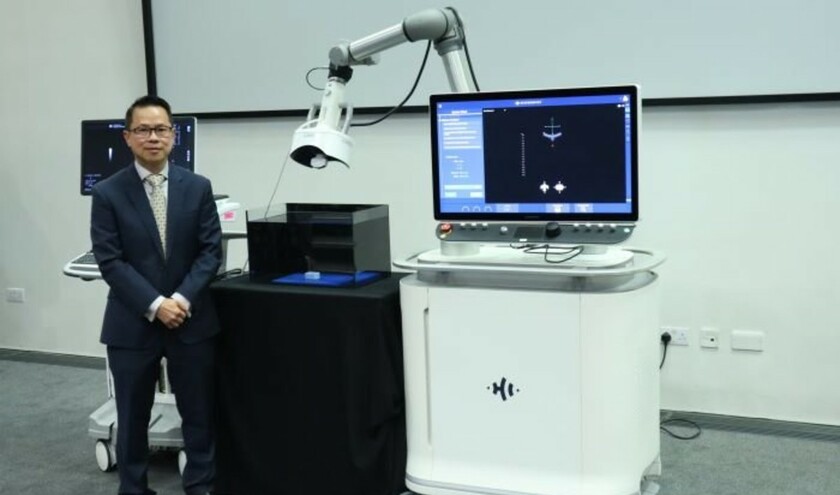Using ultrasound technology, the device – developed by US-based company HistoSonics – destroys tumours without surgery, radiation, with minimal damage to surrounding organs.
Treatment is delivered via a single short session – potentially taking no longer than 30 minutes – with limited or no pain, a quick recovery, and can be performed as a day case.
Patients stand to benefit from faster recovery times, potentially greater survival rates, fewer potentially dangerous complications, and less hospital stays.
Ongoing research is exploring its potential to transform treatment for other hard-to-reach tumours – including kidney and pancreatic cancers – bringing hope to even more NHS patients in the future.
Health and social care secretary Wes Streeting granted authorisation for controlled early access to the device via an unmet clinical need authorisation. Available through the UK's Innovative Devices Access Pathway programme, a government-funded scheme to get cutting-edge health innovations to the market much quicker, NHS patients can benefit from technology years earlier than planned.
Streeting said: ‘Bureaucracy has become a handbrake on ambition, stopping innovation in its tracks and holding our health service back. But through our Plan for Change, we are slashing red tape, so game-changing new treatments reach the NHS front line quicker – transforming healthcare.
‘Regulation is vital to protect patients. However, as the pace of innovation ramps up, our processes must be more agile to help speed the shift from analogue to digital. Our common sense approach to regulation will streamline approval processes so countless more patients are liberated from life-limiting conditions.'
The technology, called histotripsy, is being debuted at Addenbrooke's Hospital in Cambridge, part of Cambridge University Hospital NHS Foundation Trust with the first NHS patients being treated this summer.
The technology was procured and installed following a donation to the University of Cambridge from the Li Ka Shing Foundation, which has been a longstanding supporter of cancer research at the University.
Roland Sinker, chief executive of Cambridge University Hospitals, said: ‘Histotripsy is an exciting new technology that will make a huge difference to patients.
‘By offering this non-invasive, more targeted treatment we can care for more people as outpatients and free up time for surgeons to treat more complex cases.
‘The faster recovery times mean patients will be able to return to their normal lives more quickly, which will also reduce pressure on hospital beds, helping us ensure that patients are able to receive the right treatment at the right time.'
James Pound, interim executive director, innovation and compliance at MHRA, said: ‘This is a strong example of smart, agile regulation in action. Working closely with partners through the Innovative Devices Access Pathway, we've shown we can get promising technologies to patients faster – without compromising safety.
‘It's a major step forward for patients with liver cancer and shows how the UK can be a frontrunner in supporting responsible innovation that meets real clinical need.'



